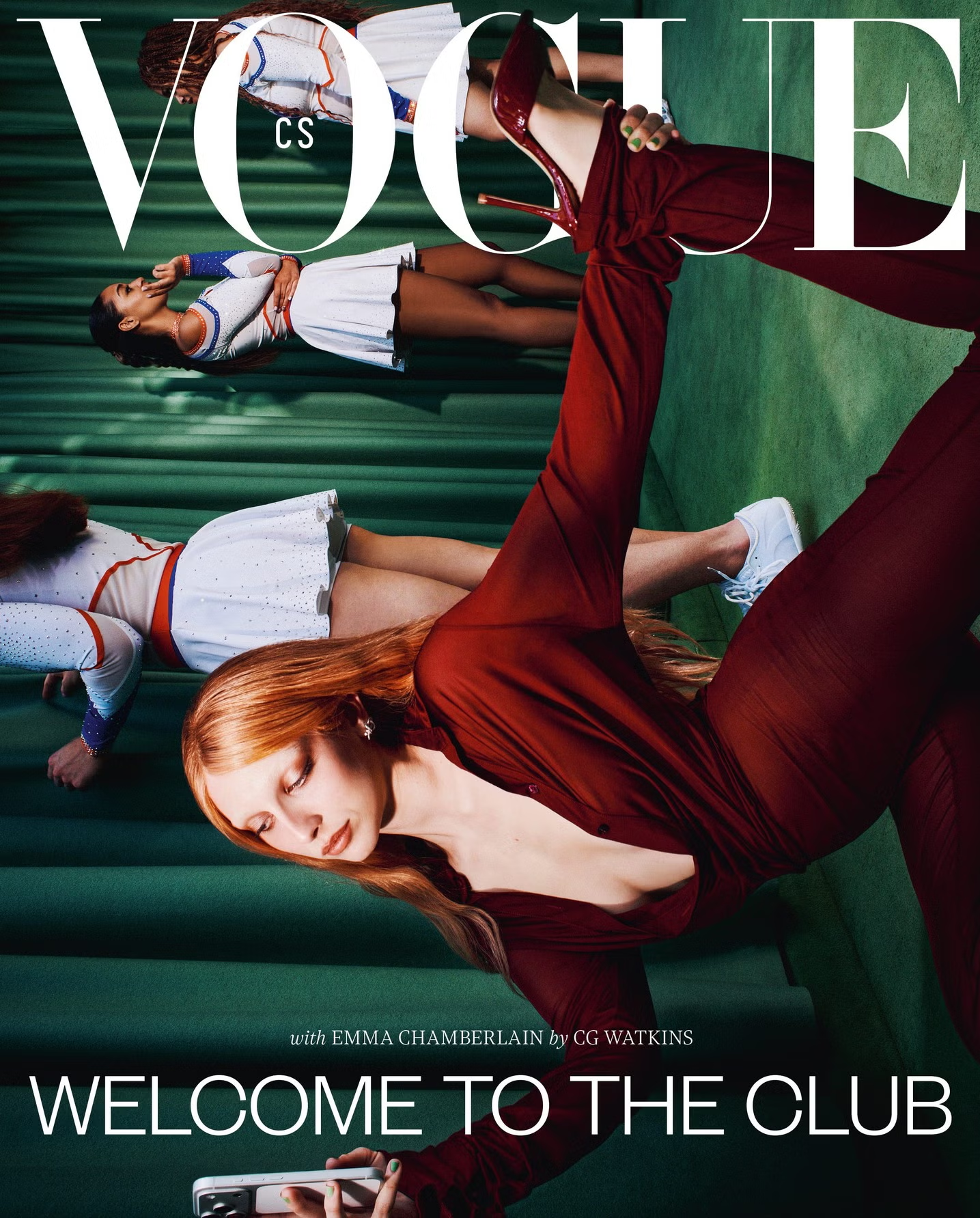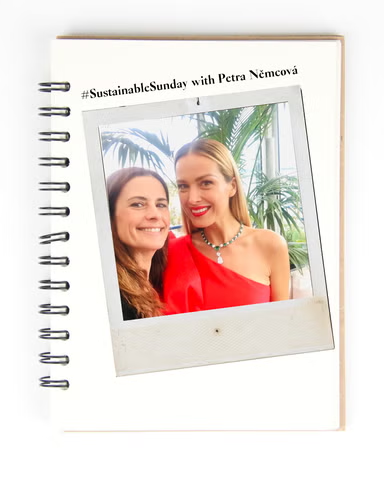Vogue CS in English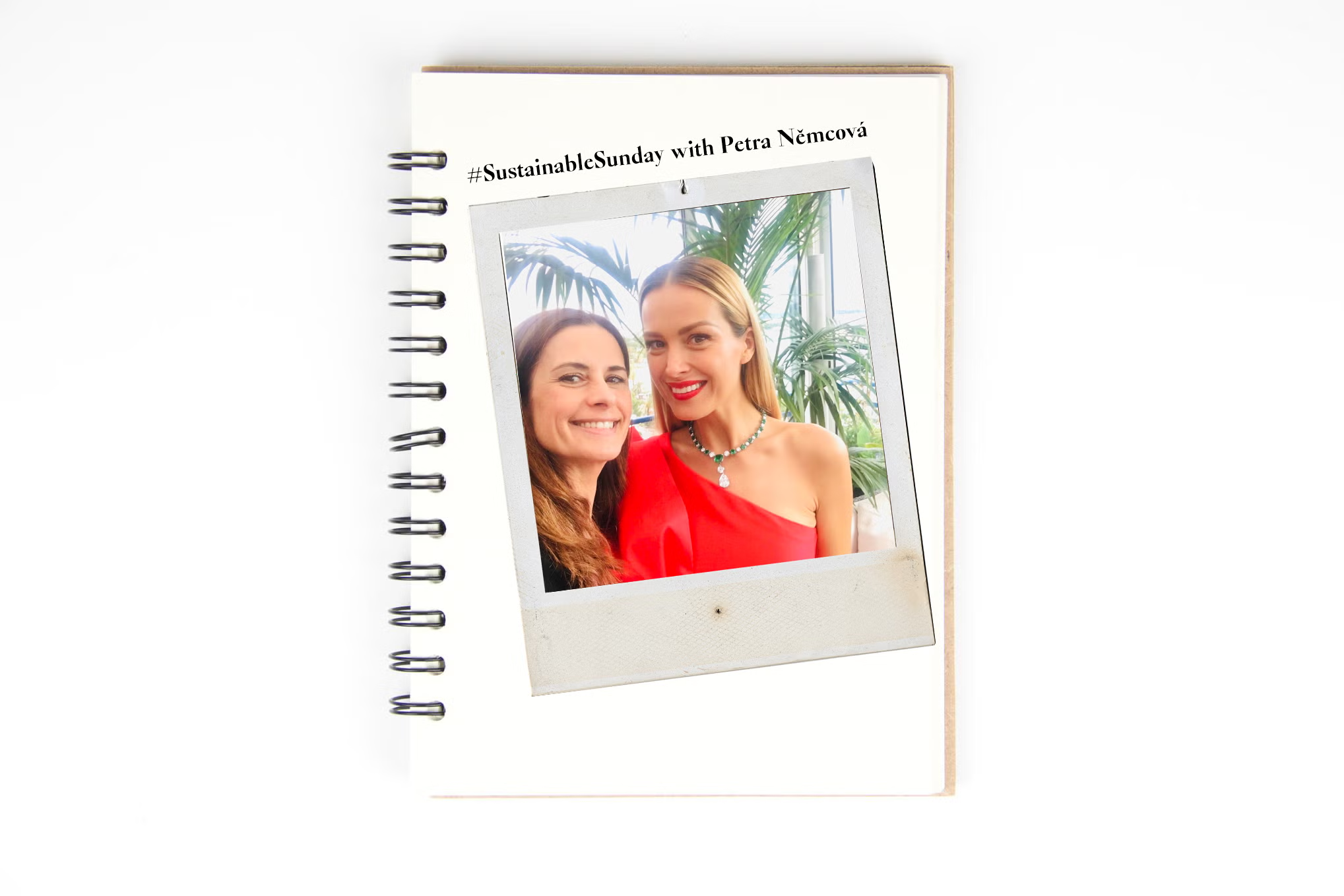
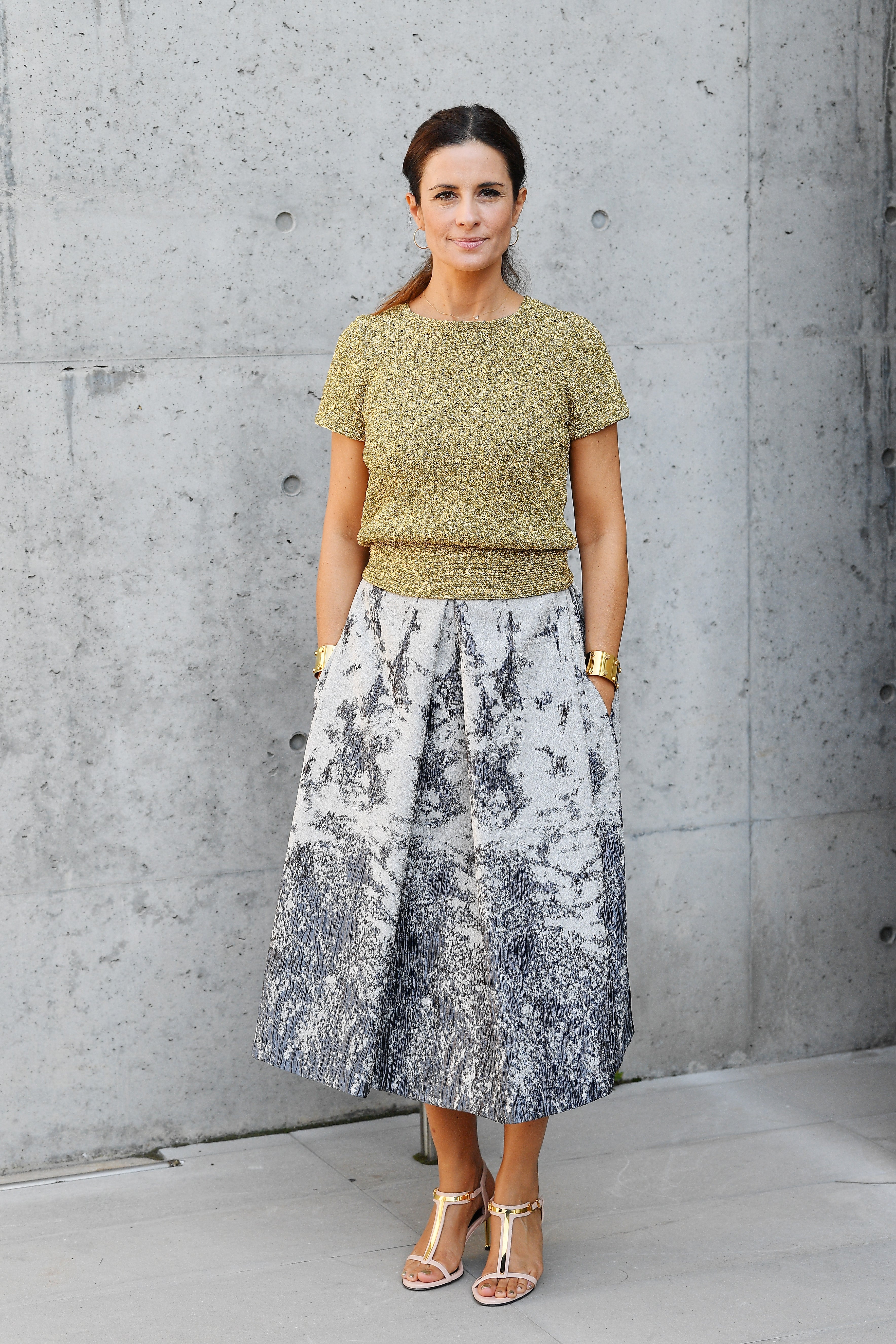
Livia Firth: Never ever think your voice does not make a difference
Petra Němcová30. 8. 2020
This time I had the honor to speak with Livia Firth, one of my biggest inspirations, who is one of the most impactful leaders in sustainable fashion, a global change maker, an unstoppable activist, a sustainability editor for Vogue Arabia, and just an incredible soul who I’m so lucky to call my friend.
In 2017 I heard about Livia Firth and her incredible work with Eco Age, which she founded and is a creative director of, when I was working with Caroline Scheufele, the co-president of Chopard as their Global Ambassador. We were shooting Chopard's Green Carpet Collection made with fair-mind gold & I was so excited to learn how Chopard started their sustainable journey.
So I asked Caroline and she explained when she meets Livia she asked her “Do you know where your gold comes from?” Caroline knew then and there not just where she was headed with this question, but mainly she knew at that moment that she will do everything in her power to take Chopard on #JourneyToSustainableLuxury. They are the first luxury jewelry Maison in the world to use 100% ethical gold in all their jewelry and watches. This is the power of Livia! She asks the right questions and then with her amazing Eco Age team consults brands to put sustainable practices through their supply chain, guides them on communication and much, much more. We need more Livia’s in this world! Hope you will be inspired by this bold and honest interview from her heart as I’m.

Foto: Petra Němcová
We live in a time that we all must awaken to be activists. You have been an incredibly inspirational activist for me and many others. You even describe yourself as a professional agitator. When did you feel first that to shake and stir things is an important role for you? What was your breaking point?
I have always loved to agitate since I was young, and when I met Colin, age 25, and then moved to London, I got exposed to a lot of new things and ideas, he used to be very involved in activism as well. I have campaigned for Reprieve, Oxfam, Amnesty, and so on, but it was a documentary I produced on the Black Panthers, called “In Prison My Whole Life” that gave me that extra boost to put everything in question and to start to be “louder”. When you encounter huge cases of abuse and exploitation and you realize the majority of people are either completely asleep or just don’t care, something inside you says “right, I am going to show you now why you have to care!” For fashion, it all began when I went to Bangladesh in 2008 and entered a factory producing fast fashion for a big European brand – what I saw was so completely shockingly wrong...

Foto: Getty Images
You keep inspiring your community to be an active citizen and they truly are very active. Why should we all be an active citizen and how can we be the most impactful active citizens?
The term active citizen is in contrast with “consumer” – today they call us consumers rather than citizens and they have disempowered us, they made us believe that we do not make a difference, whatever we do it’s just one individual and so what’s the point? But look at history and how change has been affected by individuals, then one by one we became an ocean! Our daily actions matter, matter so much that we could truly change the world. Take for example the two most basic things we do every single day: we eat and we get dressed. If we ate and wore only things produced ethically, we would create a magic circle of change that would create a huge transformation. Every person in the supply chain respected and paid a living wage, every impact on the environment positive, everything in a relationship of co-dependency, and acknowledging that. It is powerful!
One of your biggest focus has been exposing big issues in the fashion industry, especially when it comes to fast fashion and the ethical or rather nonethical treatment of garment workers. What do people need to know and how can they make the right decisions?
Fast fashion is a recent business model (like fast food) predicated on the production of huge volumes of clothes, incredibly fast and incredibly cheap. It works only if you use slave labor, and it has created a huge environmental impact as well – as we keep buying and throwing away clothes in the name of democratization of fashion (but it is not the democracy of the garment workers I tell you that!). When I was young, fast fashion did not exist. You would buy one or two items a year, very good quality, and keep them forever. Then when it was first launched on the high street, slowly it addicted us to buy quickly, as the items where in-store only for one week, and they were cheap and we perceived them as a bargain... And so it has become like a drug. Today we buy a dress for a Saturday night party or we use it for one season (statistics even say the average item stays in a woman closet for only 5 weeks which is unreal) – how is this normal? And mostly – how is it sustainable? Slavery and destruction of the planet – here are the two causes of this.
For the last 12 years as a founder and creative director of Eco Age you have been creating a huge change in many aspects. How do you inspire so many individuals, brands & organizations to activate a more sustainable and conscious life on our planet?
Thank you! The team at Eco Age is very committed and very passionate, and we work across many supply chains and through the years I have learned a lot! I have also visited many countries to learn first hand about single issues: I went to Australia to look at the wool supply chain, to Bangladesh for fast fashion, to Botswana for diamonds and Brazil for leather – only to name a few.
Through the Green Carpet Challenge and Green Carpet Awards, #30Wears, and many more initiatives you brought the conversation about sustainable fashion to the front of our minds & into our hearts. In 2008 almost nobody spoke about sustainable fashion. First of all, thank you to you and your amazing Eco Age team and second what plans do you have with Eco Age for the next few years and how do you help brands to find solutions & be the solution?
We have many plans and there is a lot to do. We try to devise projects which also communicate in a fun and glamorous way so that people keep being curious and do not switch off. There are so many issues that at times it can get overwhelming and therefore disempowering (as I was saying before). So the Green Carpet Fashion Awards are an Oscars like the ceremony to showcase the disruptors and innovators in sustainable fashion, we are now working with Camera Della Moda Italia on the 4th edition which will be the first event in the world to be filmed and broadcasted using four kinds of technology: augmented reality, hologram, digital and film. We are launching a digital version of the Green Carpet Challenge and also a new identity for the Eco-Age magazine online. We have lots of projects with our partners and clients too but I can’t disclose them now.
I love attending the Green Carpet Awards which are the Oscars of sustainable fashion held in La Scalia in Milan each year and which are also attended by many incredible names from legendary Sophia Loren, Iconic Mr. Valentino to supermodel Gisele Bündchen, also you founded the Green Carpet Talent (GCT) which gives exposure, platform and help from experts to new sustainable fashion designers. I was honored to be a judge of the GCT in 2018 together with Edward Enninful, editor-in-chief of British Vogue, Le Jenke, the stylist of the stars, singer & activist Ellie Goulding and other judges with whom we selected 5 semi-finalists and the winner which was announced at GCA. As we live in a different world in 2020 how will the Green Carpet Awards and Green Carpet Talent look like this year? What should we be getting excited about and where can everyone see & learn more?
As I said before – this year, it will be a groundbreaking edition and broadcasted globally. It is exciting and we wanted to be disruptive but also make everyone stop for a moment and acknowledge this extraordinary period we are living. This year, in fact, more than ever, whilst the world has literally been on fire (Australia, the Amazon, Africa, Indonesia, and even in the Arctic) and COVID-19 reduced our (unsustainable) society to pieces – the most recent movement, Black Lives Matter, reminded us that there is only one way forward: justice and equality. And despite all of these challenges, we now have a huge opportunity, one that truly holds the possibility of change. As we often look at global issues through the lens of fashion, with this year’s ceremony we are “re-fashioning the world”. Our daily routine of getting dressed therefore holds the potential to stir the course of history.
Development... There is finally a bigger focus on people, the planet, and profit, the Triple Bottom Line, through the growth of B-corps and in many other ways. Nina’s Gualinga, an indigenous activist, which we were both supporting in July was asked during an IG Live what is development to her. To her and her indigenous community, it is having clean rivers, healthy soil, and a thriving community. What does development look like to you?
I love this question as people often tell me “oh but fast fashion creates jobs in those poor countries” and it drives me crazy as that is the opposite of development. You know, I started to get a completely different perspective when I visited Botswana in December last year. I went to check a diamond country and see what was happening in a notoriously complicated supply chain. And what I saw blew me away: while in Bangladesh (for example) I met so many abused, exploited, scared women – in Botswana I met so many strong, empowered, proud women. We made a short film there with Andrew Morgan (director of The True Cost documentary) which is now on Amazon Prime and on Eco Age YouTube channel (Fashionscapes: The Diamonds of Botswana) and I encourage you all to see it. I witnessed a great example of real development: a business (diamonds) working closely with a government (Botswana) for the real benefit of civil society. I think fast fashion businesses have a lot to learn from this.
The World Economic Forum is calling for a “Great Reset” of capitalism off the back of the pandemic. It is a warning that some countries are using the crisis as an excuse to weaken environmental protections and restrictions, as well as intensify social inequalities, urging both governments and the private sector to transform. We have a shared vision for our future. What do we all need to do individually and collectively to protect our humanity & our Mother Earth?
Never ever think your voice does not make a difference! Be active, be curious, be outraged, and protest – it is up to us to demand a more just society and if we don’t care, then both people and planet will suffer unimaginably.
Vogue
Doporučuje
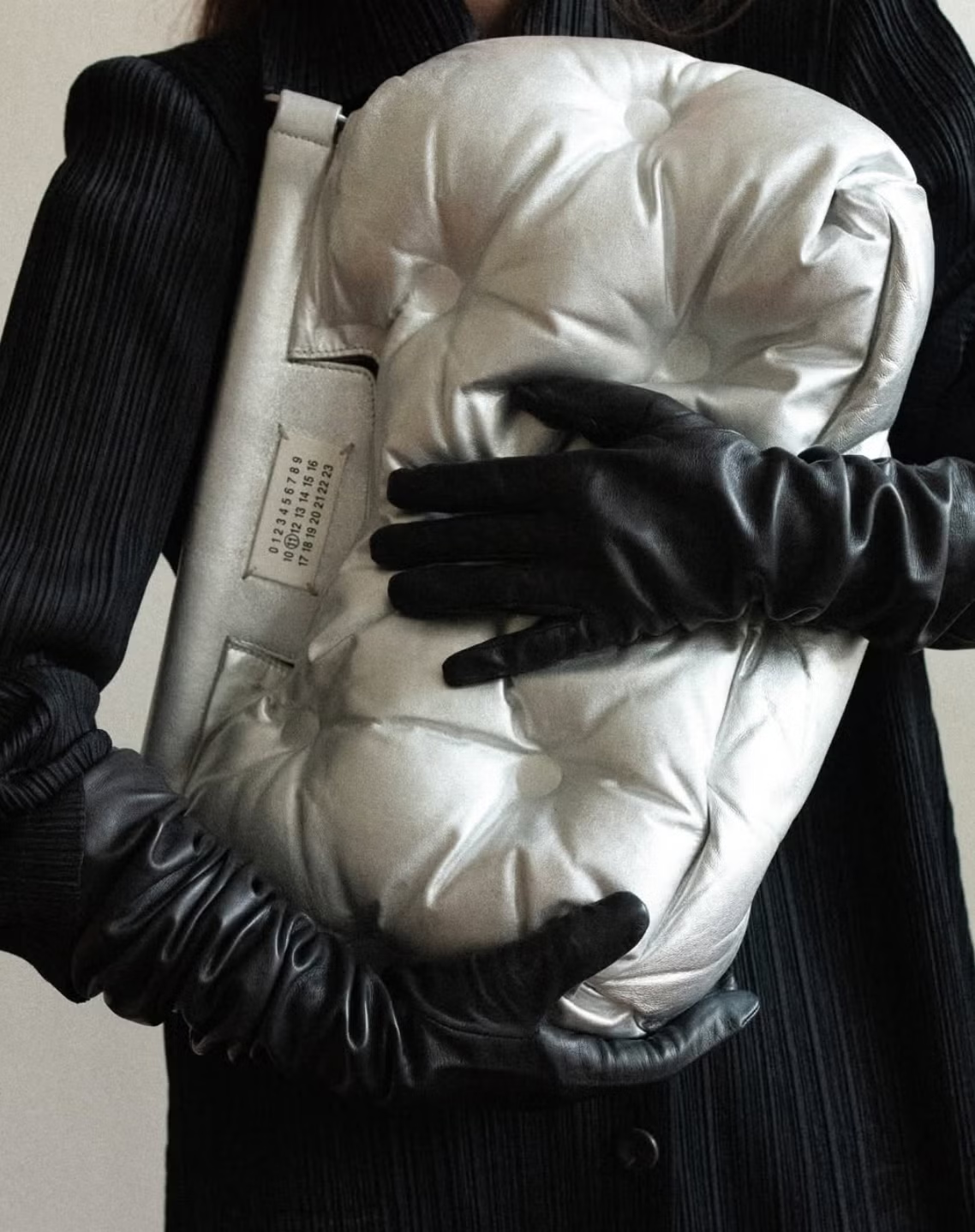
Móda
Poklady s minulostí: Kde v Praze nakoupit luxusní módu z druhé ruky
Natálie Debnárová13. 2. 2026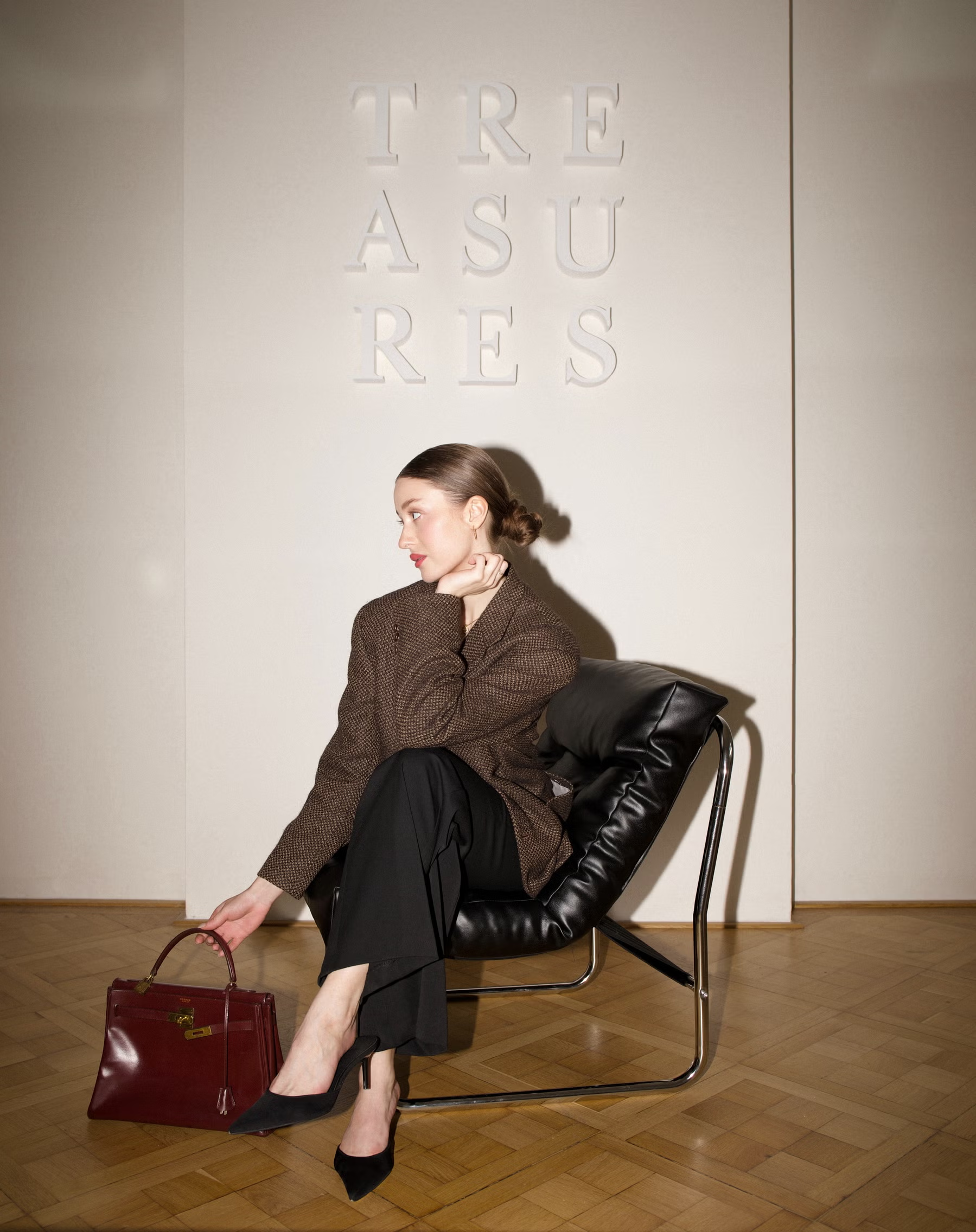
Vogue Leaders
Luxus, který už se nevyrábí. Tina Tobolová o byznysu s vintage kabelkami i odvaze riskovat
Kristýna Jandová12. 2. 2026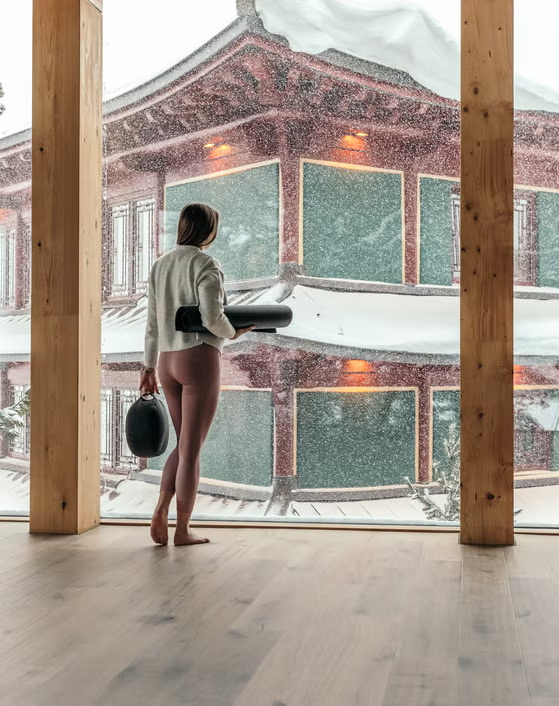
Cestování
